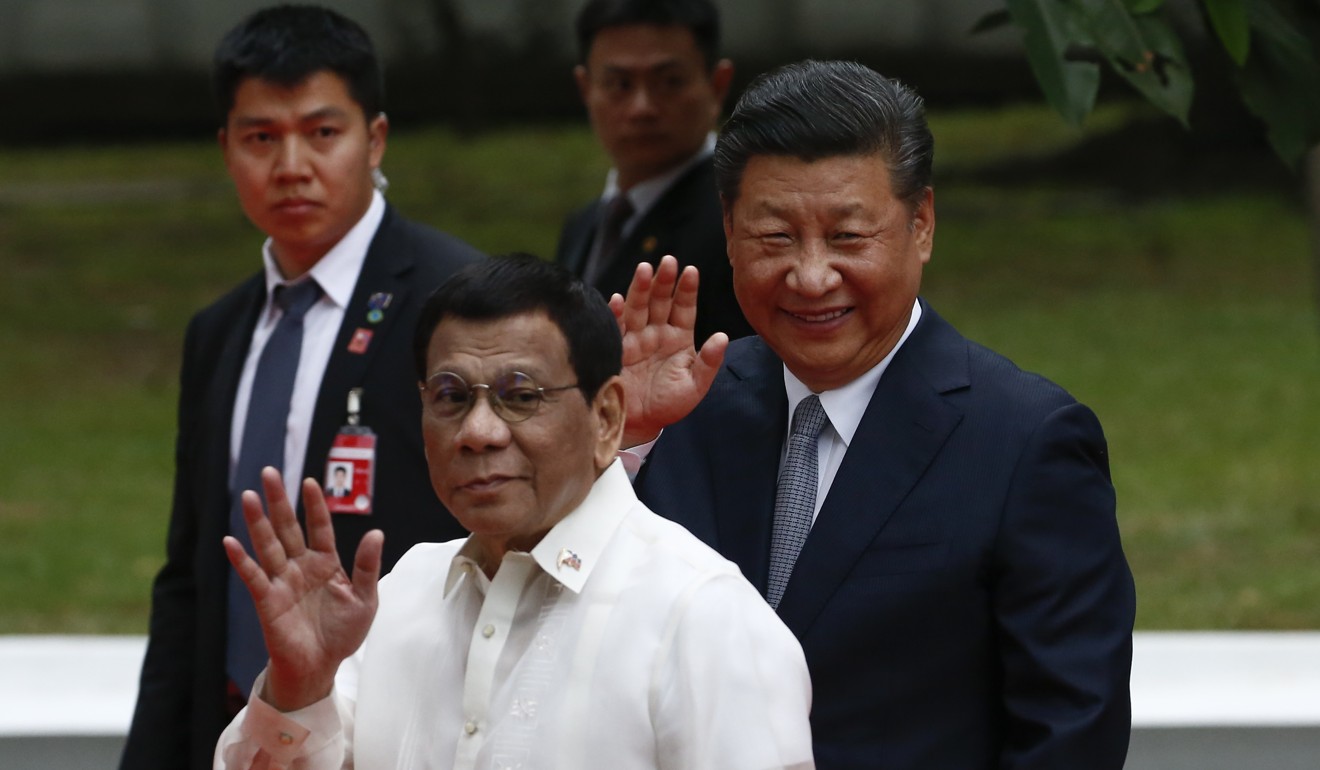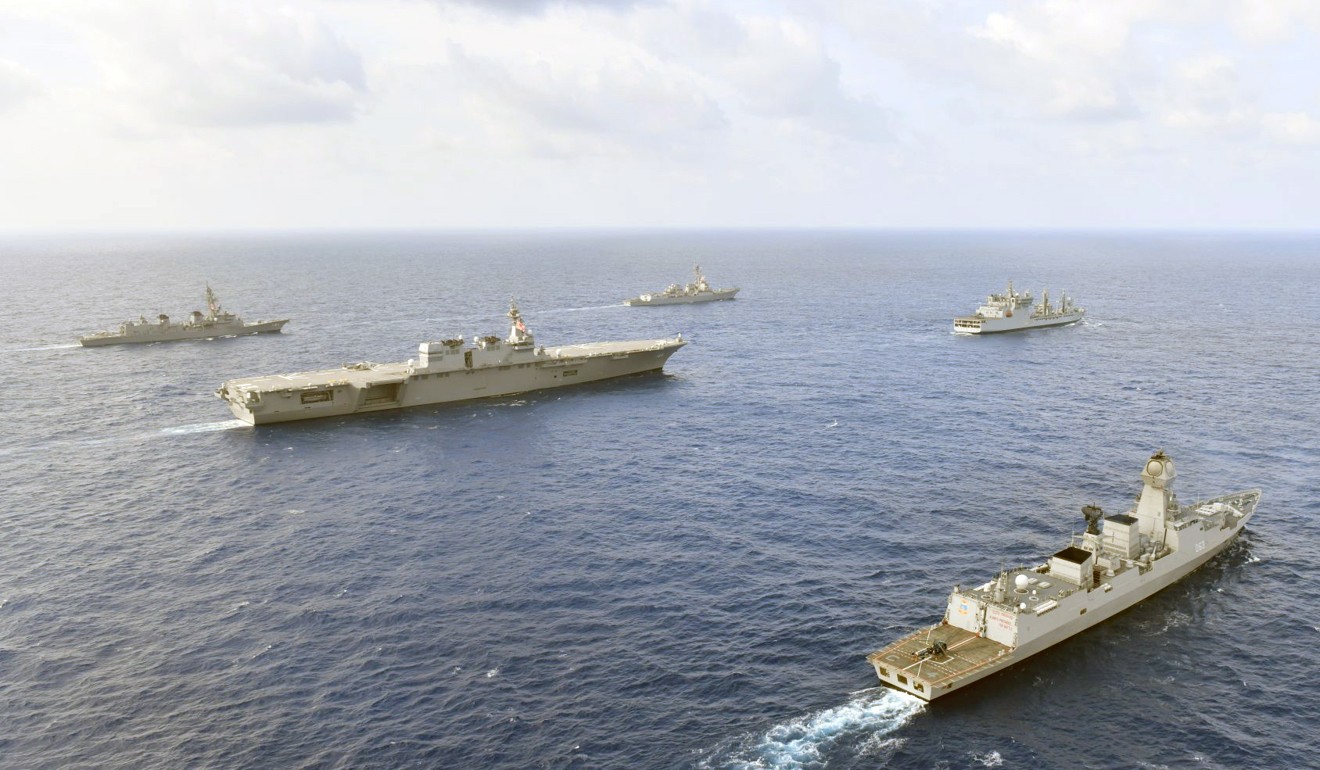
New China envoy to Philippines Huang Xilian upbeat on Beijing-Manila ties
- New envoy ‘honoured and grateful’ but flashpoints such as South China Sea and Chinese casino workers in Philippines may prove challenging
- ‘Neighbours wish each other well, just as loved ones do to each other,’ he said, while hailing President Rodrigo Duterte’s accomplishments

Beijing has appointed Huang Xilian, a former envoy to the Association of Southeast Asian Nations (Asean), as its next ambassador to the Philippines.
Huang, 52, is a veteran diplomat who previously filled posts in Brunei, India, Pakistan and the US. Upon his arrival in Manila on Tuesday said he was “very honoured and grateful” to serve in the Philippines, replacing Zhao Jianhua.
Huang begins his stint as Filipinos’ trust in China has eroded, despite President Rodrigo Duterte’s pivot to Beijing, which he said was key to boosting trade and tourism.
A survey by polling firm Social Weather Stations released last month found the net trust rating among Filipinos for China in September was -33, nine points lower than in June. The trust rating for the US was 72. The poll was conducted through face-to-face interviews with 1,800 Philippine adults.
Relations have been strained due to the growing number of Chinese workers in the Philippines, many of whom are employed by online gambling companies. Gambling is illegal on the Chinese mainland, so the companies – collectively called Philippine offshore gaming operators, or Pogos – nest their online casinos in Manila, often without being effectively taxed.
In April, the Department of Labour and Employment said 56,180 Chinese worked for Pogos but the actual number is much higher when Chinese “tourists” who work illegally for Pogos are included.

There have been reports of Manila residents evicted to accommodate higher-paying Chinese tenants, who are packed into apartments.
There are also police reports of Chinese involved in kidnapping, prostitution and bribery. Chinese nationals have been arrested on charges ranging from traffic violations to kidnap for ransom – and the authorities have revealed how some Chinese gambling syndicates employ rogue Filipino policemen.
Neighbours wish each other well, just as loved ones do to each other
The territorial dispute in the South China Sea looms as another potential flashpoint for Huang to navigate.
One of the world’s busiest waterways, the South China Sea is subject to several overlapping claims involving China, Vietnam, the Philippines, Taiwan, Malaysia and Brunei.
China claims more than 80 per cent, while the Philippines asserts ownership of the Spratly archipelago and the Scarborough Shoal. China’s “nine-dash line” is a geographical marker used to assert its claim. It stretches as far as 2,000km from the Chinese mainland, reaching waters close to Indonesia and Malaysia.
In July 2016, a ruling by an international tribunal in The Hague determined China had no “historic rights” over the sea and ruled that some of the rocky outcrops claimed by several countries could not legally be used as the basis for territorial claims. Beijing rejected the ruling and described it has having “no binding force”.
Duterte’s government has been reluctant to press the issue with Beijing although members of his government have protested the presence of Chinese ships in Philippine territory. During Duterte’s most recent visit to Beijing in August, both sides agreed to advance talks for oil exploration in the disputed waters.
In the meantime, China and Asean have been working to establish a code of conduct for the South China Sea.
The Philippines and China will mark their 45th year of ties next year and Huang, who gave an interview to local media, said he believed “the best is yet to come” for their relationship.
Huang noted China is the Philippines’ top trading partner, the largest source of imports, the third-largest export market and the second-largest tourist market.
“Neighbours wish each other well, just as loved ones do to each other,” he said. “Since President Duterte took office, the Philippines has made impressive achievements in various areas … I have every reason to believe and expect that the country will achieve greater strength and prosperity in the coming years and decades.”

Huang, who was educated at Beijing Foreign Studies University and the University of Manchester, is a career diplomat who joined China’s Ministry of Foreign Affairs in 1989. He moved to Jakarta, where the Asean secretariat is based, in 2018.
Before leaving his post, Huang wrote an op-ed for The Jakarta Post, describing the robustness of China-Asean ties. In the first half of 2019, Asean overtook the US as China’s second-largest trading partner for the first time, and trade volume is tipped to reach US$600 billion this year, he said.
Both sides were committed to the code of conduct consultations “and the formulation of regional maritime rules” and would also uphold multilateralism amid a growing trend of protectionism, Huang wrote.